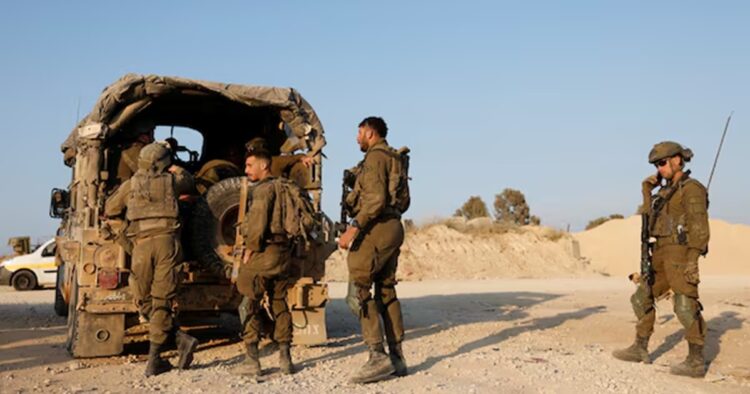In a significant development in the ongoing conflict between Israel and Hamas, Israel’s military has announced the withdrawal of its forces from the southern Gaza city of Khan Younis. This move marks a crucial phase in Israel’s ground offensive against the Hamas militant group and reduces its troop presence in the region to one of the lowest levels since the conflict began six months ago.
However, Israeli defense officials have clarified that this withdrawal does not signal an end to the conflict. Instead, troops are regrouping as the military prepares to advance into Rafah, the last stronghold of Hamas. Lt. Gen. Herzi Halevi, the military chief, emphasized that the war in Gaza is ongoing, indicating that further operations are planned.
Reports suggest that Israel is preparing to begin evacuating Rafah within the next week, a process that could take several months. This move comes amid global concerns about the humanitarian impact of a potential offensive in Rafah, which is home to over half of Gaza’s population.
The withdrawal from Khan Younis is seen as a milestone in the conflict, but the region remains heavily damaged. Images from the area show devastated buildings, overturned cars, and a landscape marred by destruction. Local residents express despair over the dire conditions, with one individual lamenting the inability of humans to survive in such an environment.
Despite the withdrawal, Israel continues to maintain a significant military presence in Gaza, particularly for targeted operations against Hamas. This includes ongoing airstrikes and raids in areas where Hamas activity persists, contributing to the widespread destruction of infrastructure, including hospitals.
In Israel, frustration is mounting over the prolonged conflict, with anti-government protests gaining momentum. Families of hostages held by Hamas militants are demanding action from the government to secure their release. Negotiations for a ceasefire and the release of hostages are ongoing, with an Israeli delegation led by intelligence officials traveling to Cairo for talks.
The international community has expressed increasing concern about the humanitarian situation in Gaza. Organizations like the International Federation of Red Cross and Red Crescent Societies warn of imminent famine for over a million people in the region. Calls for Israel to ease restrictions on aid delivery have intensified, as humanitarian workers struggle to meet the soaring needs of the population.
As the conflict persists, casualties continue to mount on both sides. Israel’s military reports losses, including casualties in Khan Younis, while concerns about wider regional implications persist. A recent strike in Damascus, attributed to Israel, has escalated tensions with Iran, further complicating the situation.
In summary, Israel’s withdrawal from Khan Younis marks a pivotal moment in the conflict with Hamas, but the situation remains tense as focus shifts to Rafah. The humanitarian crisis in Gaza continues to worsen, with urgent calls for action to alleviate suffering and prevent further escalation of violence.

















Comments